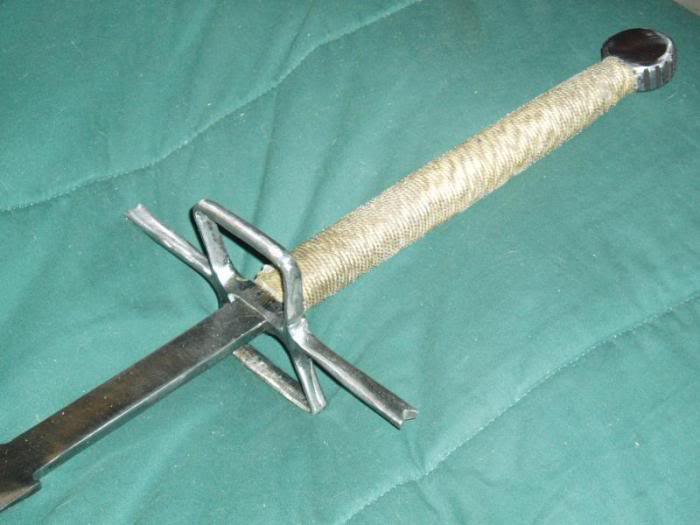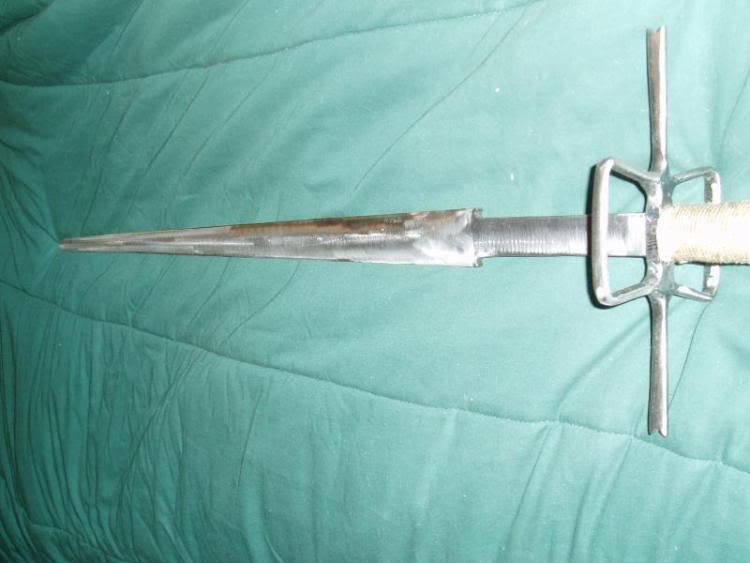It may be some what fantasy-esque, and it is in an unpolished state, however I like to think I put some real research into its construction; I'd call it an atypical Oakshotte XVIIIe or possibly XVIIIb. No doubt it has proven itself very tough, and imho reasonably manueverable. The cross is a bit soft, I'm considering attempting to harden it a bit. The blade has passed every abuse test I've thrown at it, including 55 gal barrels, the stump (edge and flat), 230# 'flex test' (allright, I was holding myself up a bit with my arms), and general bashing of a carpet pell amongst other things. I'd trust it for anything (right up until it breaks).
Specs:
Length: 51 1/4 inches (including pommel)
Hilt Length: 12 5/8 inch (including cross and pomell)
Weight: 3 lb, 10 oz
Thickness: 9/32 inch (at ricasso)
Width at ricasso: 1 inch
Width of Blade: 1 11/16 inch (lenticular)
Width at point: 5/8 inch (spatulate)
Point of Balance: 5 3/4 inch from cross
Center of Percussion: 25 3/8 inch from cross (harmonic node method?)
Temper certification@ 45-50RC
Hilt: Cord over hardwood (cottonwood actually)
Pommel: decorated disc type


[/code]